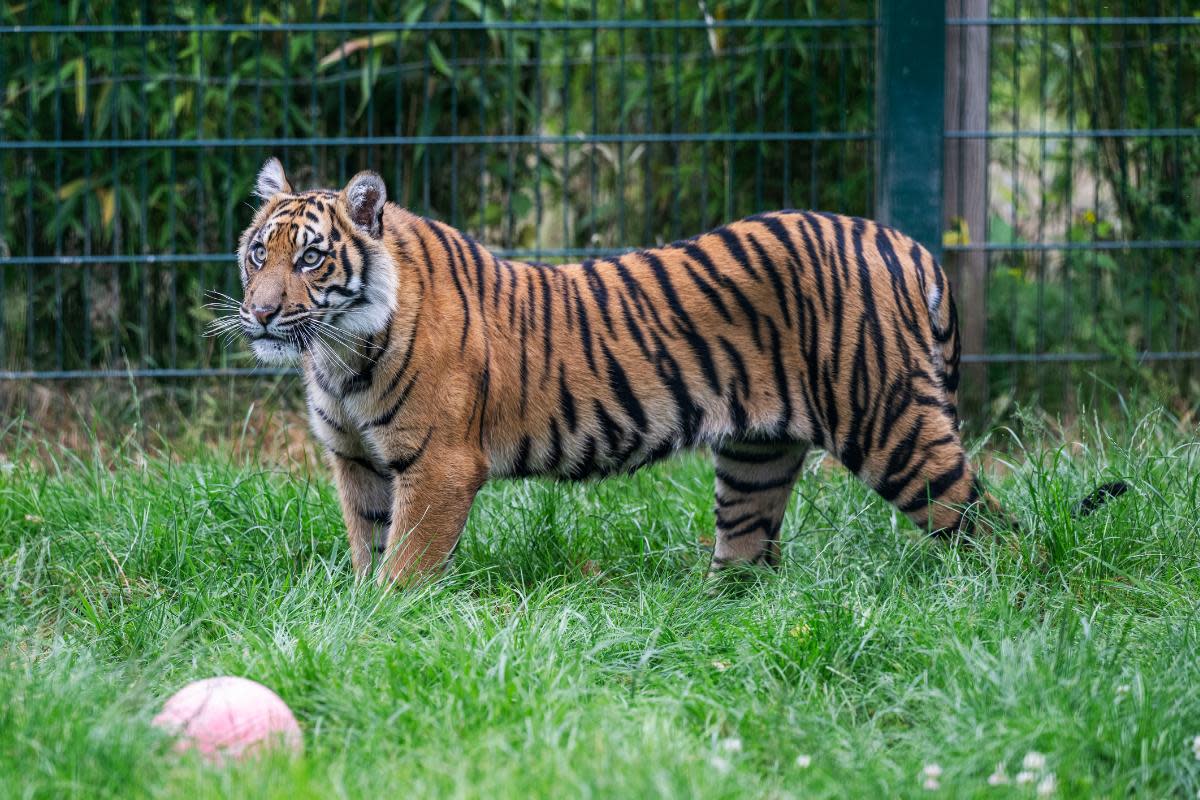'He's getting stronger every day', young Sumatran tiger cub overcomes limb weakness

A year after battling a limb weakness, a Sumatran tiger cub born at the West Midlands Safari Park can now leap, run, and bound completely normally.
Born on July 4, 2023, Lestari was the first of her kind to be born at the park.
However, four weeks into her life, a noticeable weakness in her front limbs prompted the park keepers and the veterinary team to start a physiotherapy programme to strengthen her legs.
The programme involved exercises and using walking aids.
Their effort over three weeks paid off as Lestari responded incredibly well to the treatment.
(Image: West Midlands Safari & Leisure Park)
To celebrate the one-year milestone, keepers gave her some of her favourite toys and made a selection of treats for Lestari, including a cake made from frozen goat’s milk, chunks of meat, and some shaped, blood ice blocks.
Chris Hodgkins, head keeper of carnivores, said: “The physio was a success and Lestari has gone from strength to strength since.
“This has created a very special bond with us all and to see her progress and become stronger every day, has been very rewarding.
“Lestari is very active and mischievous - she will always explore any enrichment we provide. Although she seems very independent at times, she still looks for her mum, Dourga, and never wanders far from her side.
(Image: West Midlands Safari & Leisure Park)
“The keepers worked really hard to ensure a very easy introduction with her dad, Nakal, who she has also bonded extremely well with.
“We often see her playing with Nakal and giving him a good run around. It’s amazing to see that our efforts a year ago have paid off and we’re all very proud of the young tiger Lestari has become.”
Sumatran tigers are 'critically endangered' with a high likelihood of extinction in the near future.
There are estimated to be fewer than 400 left in the wild with decreasing numbers.

 Yahoo News
Yahoo News 
